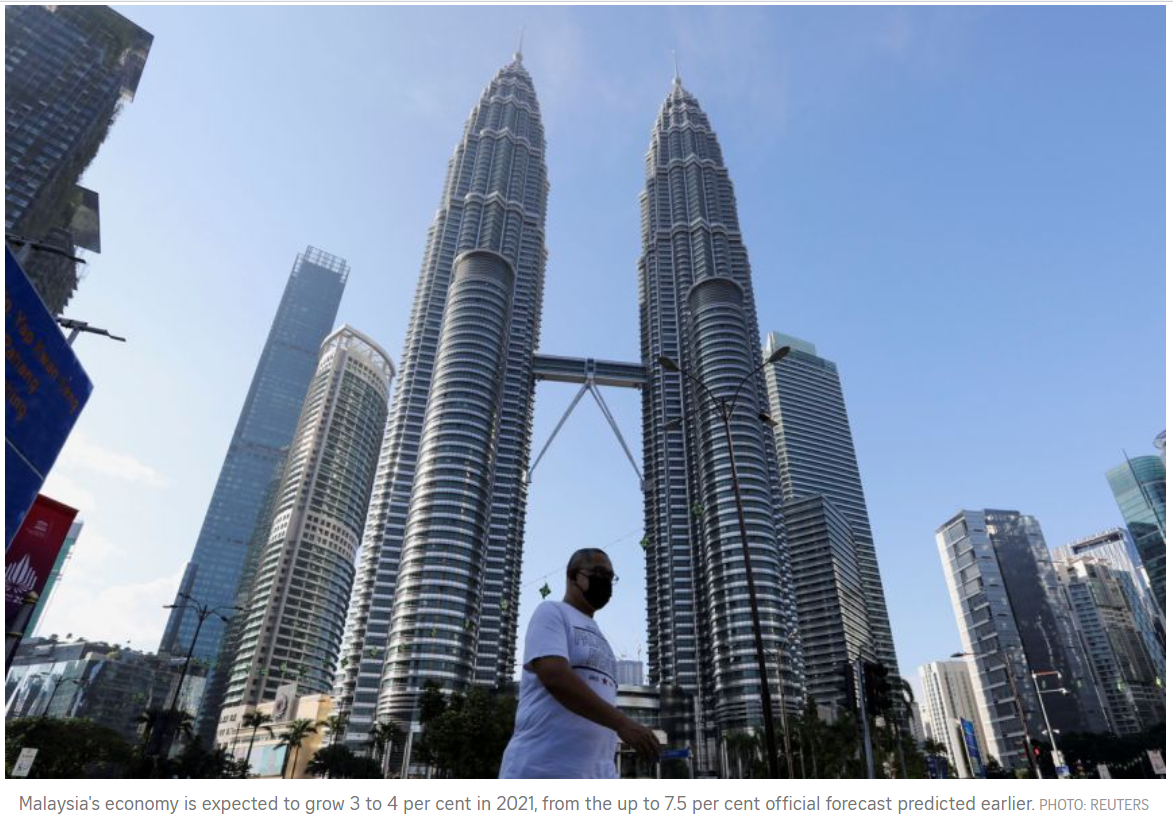Malaysia’s GDP grows 16.1% in second quarter from Covid-19-induced low base in 2020
KUALA LUMPUR – Malaysia’s economy grew by 16.1 per cent in the second quarter this year, compared with 2020 when a strict movement control order (MCO) was first imposed due to the Covid-19 pandemic.
But restrictions since May in a bid to curb a new wave of infections have resulted in the gross domestic product (GDP) declining by 2.0 per cent from the first quarter.
“While the containment measures weighed on growth, greater adaptability to restrictions and ongoing policy support have partly mitigated the impact,” central bank governor Nor Shamsiah Yunus said on Friday (Aug 13).
The strong growth also reflected the low base from the significant decline in activity during the second quarter of last year, when the MCO was first introduced and relaxed only in June.
According to the Department of Statistics, the economy grew by 7.1 per cent in the first half of the year compared with 2020, when GDP dropped by 8.4 per cent year on year.
“The economic performance in the second quarter of 2021 was supported by the continuous growth in the manufacturing sector and the rebound of services,” said chief statistician Uzir Mahidin.
However, the outlook for the second half appears bleak, with full-year growth expected to moderate to 3.0 per cent to 4.0 per cent, about half the official forecast of up to 7.5 per cent predicted at the start of the year.
With the nationwide lockdown only easing slightly this month and the Klang Valley – Malaysia’s economic hub – still in the strictest tier of restrictions, third-quarter figures are expected to dive before a year-end recovery.
“Malaysia’s growth recovery is expected to broadly resume in the later part of the second half of 2021 and improve going into 2022,” Datuk Nor Shamsiah said.
According to the Bank Negara Malaysia governor, the lockdown is expected to erode growth by 5 percentage points this year, given the daily losses of up to RM500 million (S$160 million).
Malaysia’s deepening coronavirus crisis has seen infections and deaths repeatedly hit new highs despite more than three months of strict rules.
The central bank said the increasing share of the population being vaccinated and the easing of containment measures will help catalyse the recovery.
It also pointed to significant build-up in household savings accelerated since March last year, when the MCO was first introduced. It grew at a monthly average of 20.2 per cent compared with 2019’s 4.1 per cent.
Despite these indicators and the rebound in the first half, the Organisation for Economic Cooperation and Development said in a report on Thursday that Malaysia’s recovery so far has not been inclusive, with the lower-skilled and self-employed – largely women and youth – still reeling from the outbreak.
The report showed that these groups had the most attrition in terms of job losses since the end of 2019.
“The pandemic has revealed the weakness of social protection in Malaysia,” the Paris-based body said.
Malaysia’s unemployment rate surged to 4.8 per cent in June, or 768,700 people, having eased earlier from the 5.3 per cent recorded in May during the MCO.
Source: https://www.straitstimes.com/asia/se-asia/malaysias-gdp-slides-from-first-quarter-due-to-covid-19-surge


 Thailand
Thailand




